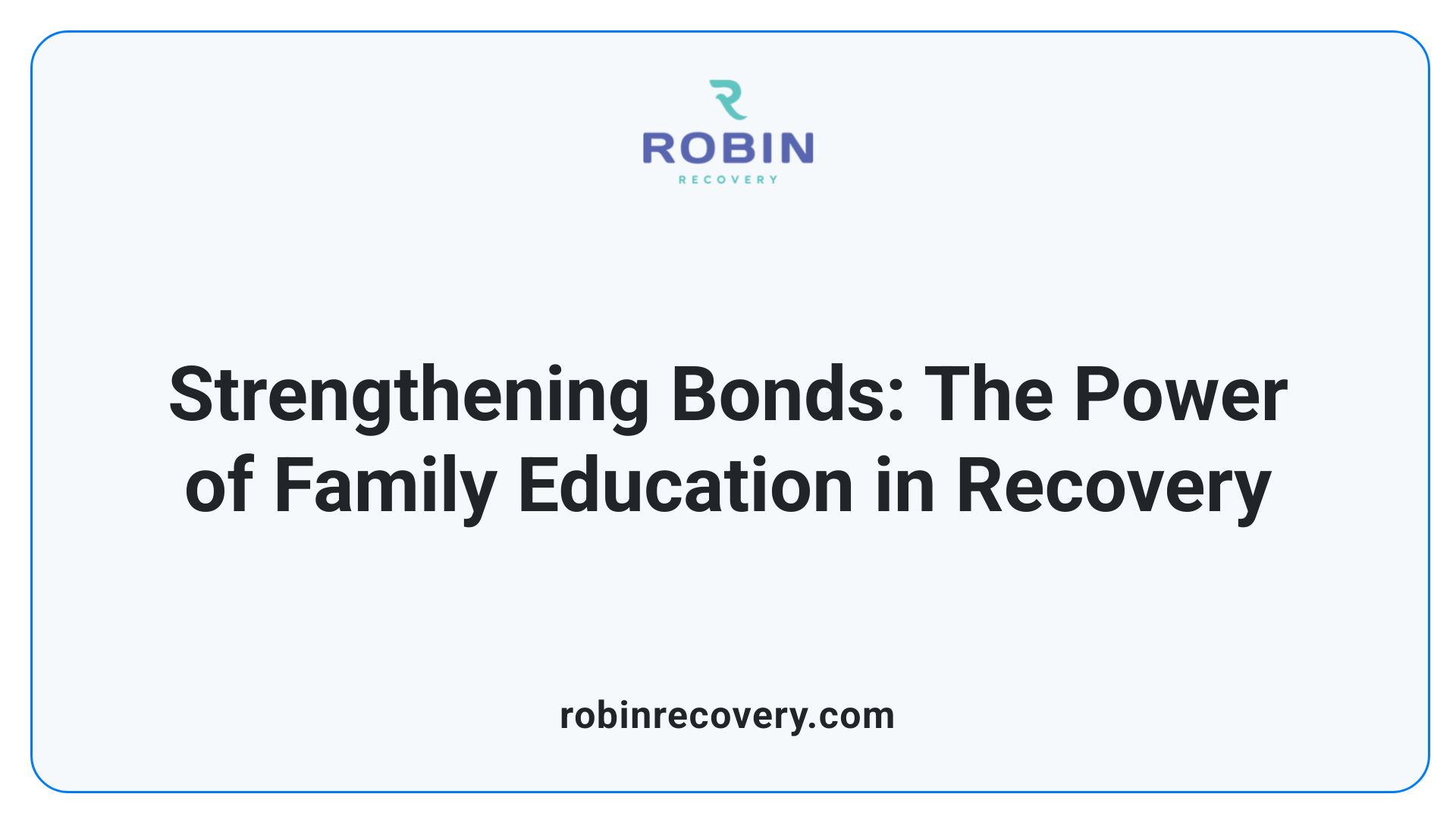The Benefits of Educational Workshops in Rehab Programs

Introduction
Educational workshops are increasingly recognized as powerful tools within rehabilitation programs, offering myriad benefits to individuals in recovery. These workshops foster not only personal growth but also the development of essential skills that play a critical role in achieving and maintaining long-term sobriety. In this article, we delve into the numerous ways through which educational workshops contribute to enhanced recovery outcomes, improved communication skills, and overall better rehabilitation services.
Empowering Recovery Through Skill Acquisition

What specific skills are taught in rehabilitation workshops and how are they relevant to long-term sobriety?
Rehabilitation workshops focus on building a comprehensive set of skills critical for maintaining long-term sobriety. Among these skills are:
- Stress Management: Techniques to handle stress can prevent triggers that lead to relapse.
- Problem-Solving: Participants learn to navigate challenges and overcome barriers to recovery.
- Emotional Regulation: Understanding and managing emotions helps individuals cope with the ups and downs of recovery.
- Relapse Prevention: Workshops emphasize the development of strategies to avoid situations that may lead to substance use.
Healthy communication skills are also integrated into the training, allowing individuals to express their needs effectively while establishing vital support systems. Participants engage in practices that promote self-care, physical activity, and stress relief. Moreover, cognitive restructuring techniques are introduced, empowering individuals with the ability to challenge negative thoughts and reinforce positive behaviors.
Setting healthy boundaries is another essential focus, ensuring that individuals can confidently refuse situations that threaten their recovery. Overall, these skills act as practical tools, enhancing the ability to face life’s challenges and significantly lowering the risk of relapse.
The Impact of Skill Acquisition on Long-term Sobriety and Personal Development
Skill acquisition in rehabilitation is pivotal not only for sobriety but for overall personal growth. Engaging in structured educational programs fosters a sense of routine, instilling discipline that is crucial during recovery. Consistent attendance and active participation encourage healthy habits, benefitting both personal and professional development.
Furthermore, education promotes emotional and mental well-being, empowering individuals with the confidence to tackle life's obstacles. By integrating life skills training, individuals enhance their readiness for life post-recovery, increasing their chances for sustained sobriety and improved quality of life.
Example: Roaring Brook Recovery's Personalized Coaching and Support
Roaring Brook Recovery exemplifies an effective approach to skill acquisition through its life skills training program. Tailoring support to the unique needs of each participant, they offer personalized coaching that aligns with individual recovery journeys.
Through this program, clients receive focused guidance on coping strategies coupled with practical skills needed for daily life challenges, such as time management and effective decision-making. This individualized attention not only enhances immediate recovery outcomes but also promotes long-lasting change, significantly bolstering individuals’ confidence and independence as they navigate their paths to sobriety.
Ultimately, educational workshops in rehabilitation settings lay the foundation for enduring recovery by equipping individuals with essential skills that foster personal growth, resilience, and a decreased likelihood of relapse.
Enhancing Communication Skills for Better Outcomes

How do educational workshops contribute to improved communication skills?
Educational workshops are pivotal in enhancing communication skills, particularly in recovery settings. These structured programs provide targeted training focused on essential techniques such as active listening, empathy, and assertiveness. Participants learn how to interact effectively, both verbally and non-verbally, improving their capacity to express thoughts and feelings clearly.
One notable example is workshops offered by the American Medical Association (AMA) and Coursera, which cover a range of communication strategies tailored to various experience levels. These workshops include hands-on training and practical activities that prepare attendees to use their newfound skills in real-life situations. As they participate, individuals gain insights into conflict resolution methods and persuasive communication, fostering healthier interactions.
Through engaging discussions and role-playing exercises, participants develop a deeper understanding of others' emotions and needs. This fosters better workplace dynamics and improves personal relationships, which are crucial for those navigating recovery.
In summary, the holistic approach offered by educational workshops equips participants with vital communication skills necessary for professional success and personal growth, ultimately contributing to positive outcomes in their recovery journeys.
Continuous Professional Development for Practitioners

What role do educational workshops play in enhancing practitioners' skills and improving patient outcomes?
Educational workshops play a crucial role in enhancing practitioners' skills and improving patient outcomes by providing continuous professional development opportunities. These workshops not only focus on theoretical knowledge but also incorporate practical skills essential for counseling and treatment.
Enhancing Skills and Compliance
Research shows that educational meetings can improve compliance with desired practices by an adjusted risk difference of 6.79% (95% CI 6.62% to 6.97%), highlighting their moderate positive effect. A similar improvement in patient outcomes has been observed, with an estimated adjusted risk difference of 3.30% (95% CI 3.10% to 3.51%). These workshops are particularly effective when:
- Attendance rates are high.
- Take-home materials are provided.
- Explicit theories are utilized during sessions.
- A variety of behavior change techniques are employed.
Evidence-Based Practices in Workshops
The emphasis on evidence-based approaches ensures that practitioners learn the most effective strategies to support their clients. For example, workshops in inpatient rehab programs teach skills like conflict resolution, empathy, and relapse prevention, which are crucial in helping couples manage addiction-related challenges. This educational focus not only enhances practitioners' skills but also fosters better communication with clients, which is vital for positive recovery outcomes.
Long-Term Benefits and Organizational Support
While immediate improvements in skills are often observed, sustaining these skills requires ongoing support and follow-up. Institutional factors can significantly influence the successful adoption of new practices post-training, emphasizing the necessity for organizational support. By aligning these educational strategies with practitioners' needs, the quality of care provided to patients can be substantially enhanced.
The Crucial Role of Family Education in Rehabilitation

What impact does family education within rehabilitation programs have on supporting individuals in recovery?
Family education within rehabilitation programs plays a significant role in the recovery journey. It fosters understanding and effective communication among family members, which can be vital for a supportive recovery environment.
When families are educated about addiction and recovery processes, they gain essential knowledge to manage caregiving roles. This reduces stress and alters family dynamics that may have been adversely affected by a loved one’s addiction. Here are some key benefits of family education:
- Enhanced Understanding: Families learn about the nature of addiction, enabling them to empathize with the challenges faced by their loved ones.
- Improved Communication Skills: Education facilitates better conversations, allowing families to discuss sensitive issues constructively.
- Increased Support: Family members who understand the recovery process can offer more effective emotional and practical support.
- Better Caregiver Management: Educated caregivers can navigate the emotional and physical demands of supporting someone in recovery, reducing feelings of isolation and anxiety.
- Promotion of a Positive Environment: This knowledge helps create a stable home environment, boosting the individual’s self-esteem and rehabilitation outcomes.
Ultimately, active family involvement, supported by education, emerges as a critical factor in successful recovery. By equipping families with the necessary tools and insights, rehabilitation programs can significantly elevate the chances of positive outcomes for individuals in recovery.
The Overall Significance of Educational Workshops

What are the benefits of educational workshops in rehabilitation programs?
Educational workshops in rehabilitation programs offer a multitude of benefits. They are instrumental in developing essential life skills and interpersonal communication, which are crucial for fostering healthier relationships and enhancing personal growth. These workshops create a supportive, structured environment that allows participants to practice new skills, work on self-awareness, and improve overall recovery outcomes, thereby facilitating long-term sobriety.
Participants gain a deeper understanding of addiction and mental health, which is vital when rebuilding trust within their relationships and enhancing empathy between partners. Additionally, the conflict resolution techniques taught help navigate disagreements constructively, a skill that can mitigate destructive behaviors often linked to addiction.
Improvement in personal and group rehabilitation efforts
The effectiveness of educational workshops extends beyond individual benefits. Programs like Veteran Readiness and Employment (VR&E) include educational elements that prepare veterans for civilian life, focusing on job training and employment skills. This comprehensive educational approach greatly assists in bridging the gap between rehabilitation and real-world application.
In parallel, the Client Assistance Program (CAP) benefits from workshops geared towards keeping professionals updated on best practices in rehabilitation services. This ongoing education ensures that both clients and professionals are equipped with knowledge that fosters effective treatment outcomes.
Examples of impactful programs like VR&E and CAP
Several successful programs embody the principles of educational workshops:
Program Description Impact Veteran Readiness and Employment (VR&E) Offers job training and resume development skills for veterans transitioning to civilian life. Enhances employability and supports a successful life post-service. Client Assistance Program (CAP) Educates professionals on best practices to assist clients effectively in rehabilitation. Promotes improved services and adherence to contemporary rehabilitation standards.
Conclusion
The integration of educational workshops into rehabilitation programs is a transformative approach that caters to both individual and group needs within addiction recovery. These workshops provide a foundation for building essential skills, improving communication capacities, fostering family support, and enhancing professional practices. By equipping individuals with the necessary tools and knowledge, educational workshops create a path toward long-term sobriety, personal development, and improved mental health and relationship dynamics. As these programs continue to evolve, they remain a vital component of effective treatment strategies, offering hope and support to individuals on their journey toward recovery.
References
- Continuing education meetings and workshops - PubMed Central
- Do inpatient rehab for married couples offer educational workshops ...
- Effectiveness of workshop training for psychosocial addiction ...
- Life Skills Training in Recovery | Addiction Treatment
- The Top 5 Benefits of Combining Education and Addiction Treatment
- Education Workshops | Blue Hills Recovery
- Academic and Training Opportunities Guide for Recovering Addicts
- Coping Skills for Long-Term Sobriety - Hanley Center
